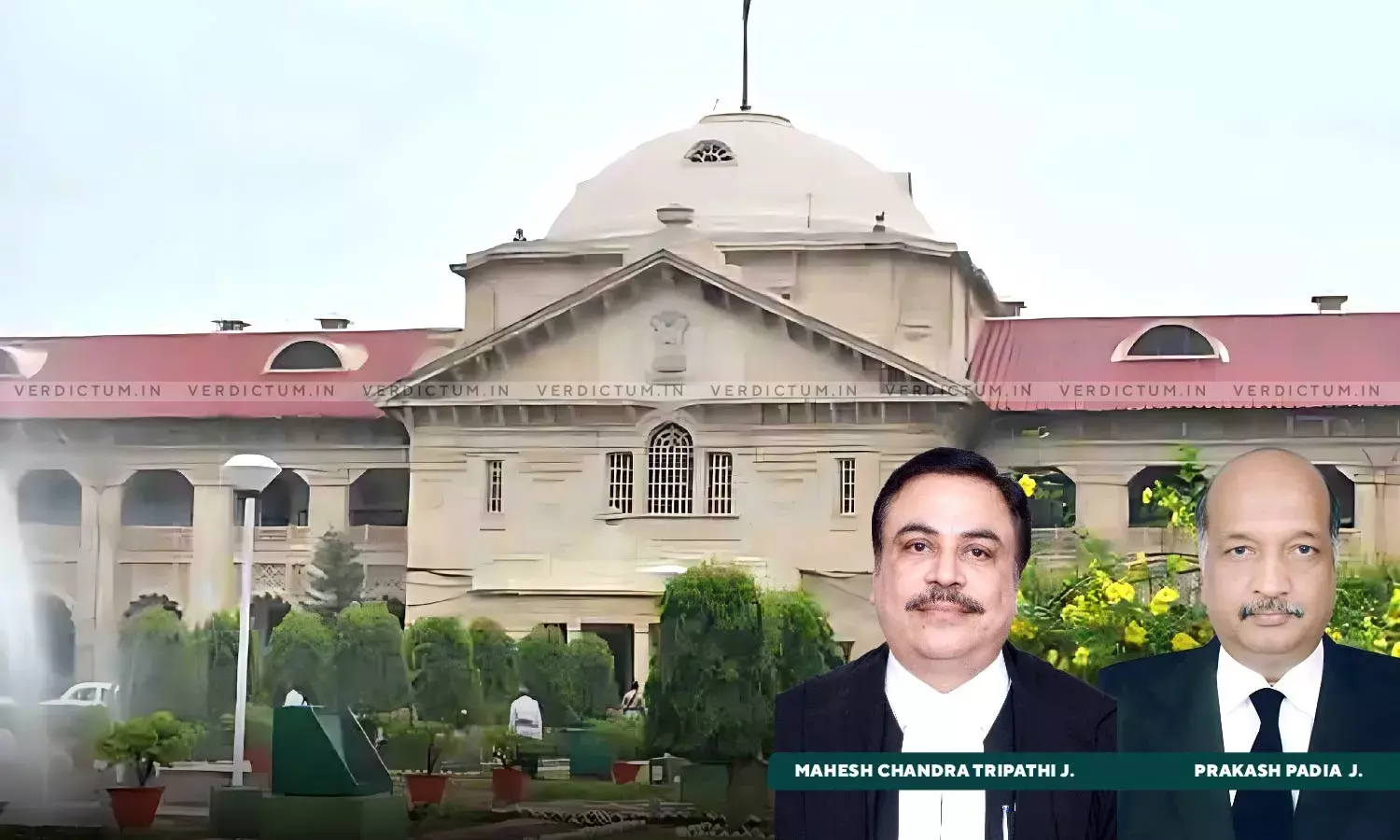Noncompliance With Sections 41 & 41A CrPC By Police Will Inure To The Benefit Of The Accused: Allahabad HC

The Allahabad High Court recently, while dealing with a Criminal Petition seeking the quashing of an F.I.R. for the alleged non-compliance of Section 41 and Section 41-A of the Code of Criminal Procedure by the Police Authority, held that "The consequence of noncompliance with Section 41 shall certainly inure to the benefit of the person suspected of the offence. On the scope and objective of Sections 41 and 41A, it is obvious that they are facets of Article 21 of the Constitution."
The Division Bench of Justice Mahesh Chandra Tripathi and Justice Prakash Padia was dealing with a case of one Rajkumari who was accused of offences under Sections 3 and 7 of the Essential Commodity Act, 1955. The Petitioner had approached the High Court seeking a direction to the State of Uttar Pradesh for not arresting the Petitioner pursuant to the aforesaid FIR.
Appearing for the Petitioner, Advocate Mahendra Kumar Yadav submitted that all alleged offences are punishable with imprisonment of seven years, therefore the police authorities are bound to follow the procedure laid down under Section 41-A Cr.P.C. The Petitioner relied on the judgment of the Allahabad High Court in Criminal Misc. Writ Petition No.17732 of 2020 (Vimal Kumar and 3 others vs. State of UP and 3 others) in which guidelines have been framed following the judgement of the Apex Court in different cases, relating to offences providing punishment of seven years or less.
Considering the submissions, the High Court noted observed that "The investigating agencies and their officers are duty bound to comply with the mandate of Section 41 and 41A of the Code and the directions issued in Arnesh Kumar v. State of Bihar, (2014) 8 SCC 273. Any dereliction on their part has to be brought to the notice of the higher authorities by the court followed by appropriate action. The principle that bail is the rule and jail is the exception has been well recognised through the repetitive pronouncements of the Apex Court, which is on the touchstone of Article 21 of the Constitution of India (Ref. Nikesh Tarachand Shah v. Union of India, (2018) 11 SCC 1. This provision mandates the police officer to record his reasons in writing while making the arrest. Thus, a police officer is duty-bound to record the reasons for arrest in writing. The consequence of noncompliance with Section 41 shall certainly inure to the benefit of the person suspected of the offence. On the scope and objective of Sections 41 and 41A, it is obvious that they are facets of Article 21 of the Constitution. The same has been elaborately dealt with in paragraphs 7.1 to 12 of the judgment in Arnesh Kumar's case".
Accordingly, holding that the said guidelines framed by this Court in the above-noted judgement are equally applicable to the facts of the instant case, the Bench disposed of the Petition in view of the judgments cited above.
Cause Title: Smt. Rajkumari v. State Of U.P. And 3 Others [Neutral Citation No. - 2023:AHC:129362-DB]
Click here to read/download the Order

